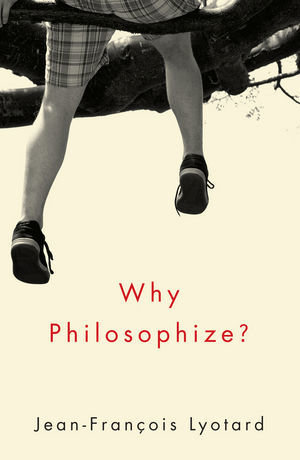Why Philosophize? is a series of lectures given byJean-François Lyotard to students at the Sorbonne embarking ontheir university studies. The circumstances obliged him to be bothclear and concise: at the same time, his lectures offer a profoundand far-reaching meditation on how essential it is to philosophizein a world where philosophy often seems irrelevant, outdated, orinconclusive.Lyotard begins by drawing on Plato, Proust and Lacan to show thatphilosophy is a never-ending desire - for wisdom, for the'other'. In the second lecture he draws on Heraclitusand Hegel to explore the close relation between philosophy andhistory: the same restlessness, the same longing for a precariousunity, drives both. In his third lecture, Lyotard examines howphilosophy is a form of utterance, both communicative and indirect.Finally, he turns to Marx, exploring the extent to which philosophycan be a transformative action within the world.These wonderfully accessible lectures by one of the mostinfluential philosophers of the last 50 years will attract a widereadership, since, as Lyotard says, 'How can one notphilosophize?' They are also an excellent introduction toLyotard's mature thought, with its emphasis on the need forphilosophy to bear witness, however obliquely, to a recalcitrantreality.

